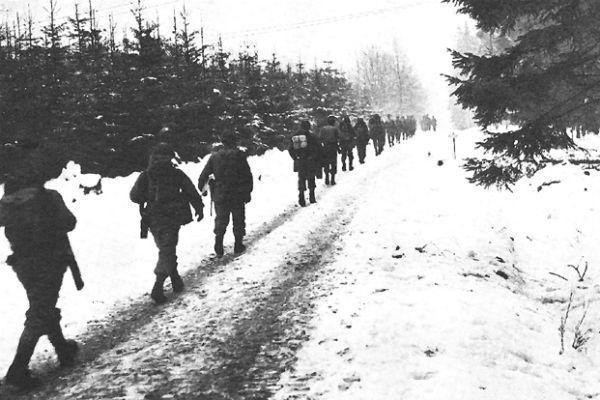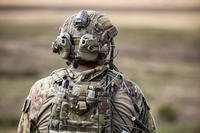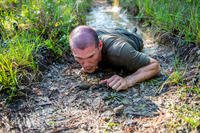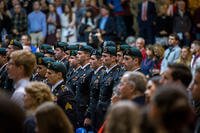"Panzer Marsch!" Sixty years later, my father vividly recalls the order crackling over the radios of his small task force at 0430hrs, 16 December 1944. Operation Watch on the Rhine - the "Battle of the Bulge" had begun.
Sure-footed, like the animal, the 45-ton Panther tank tracks clawed into a muddy and narrow road, the long-barreled gun pointing in the direction of the Belgian village of Bastogne. The crew and the grunts sitting on the tank's backside were cold, hungry but also confident. Attacking was preferable to getting bombed to death in a stationary assembly area.
As daylight broke, the Panzertroops closely scanned the skies - as long as the cloud cover held, thing would be all right. Rapid attacks conducted from the march broke several ill-positioned defenses. Scores of American prisoners stumbled east towards Germany, many asking the passing Landsers where they would end up.
Then it was Christmas 1944. Twenty kilometers west of Bastogne, grenadiers on reconnaissance secured a wine cellar with thousands of bottles of French wine. Judging from the scores of empty bottles and the abandoned supplies and vehicles, the Americans had been quite surprised.
My father's 44-man Kampfgruppe occupied the area. Their young and inexperienced commander, a first lieutenant, ordered a short Christmas break. He deferred to the experienced warriors of the outfit - the old Obergefreiten, the senior privates and corporals. They knew what to do.
After nightfall, my father and his tank crew received their portion of the loot in their forward security position. The heavy wine made my father's crew reminisce about times when Christmases had been happier, while a subdued "Oh Tannenbaum" drifted from a nearby machine gun position. Then loader Heinemann climbed aboard the Panzer. With a grin, he produced a small wooden tree decorated with makeshift ornaments. The crew placed it on the floor of the turret.
Under a blackout cover, they lit a candle and the driver asked God to be on the German side, just for a change - and to get the war over with. Gifts included captured rations and cigarettes. Surprisingly, there was very little shooting that night, although the half-toasted German combat team conducted a few security patrols.
It was back to full-scale war the next day. For a few days, there were fierce firefights, but only shallow advances on either side. Then the gasoline ran out - and without fuel, even the deadliest tanks become immobile bunkers that can overrun or destroyed from the air.
Around New Year's Day 1944, the order to pull back arrived by motorcycle messenger. Out of fuel, my father's Panther tank had to be blown in place.
After several days of infantry fighting, using the Panthers salvaged on-board weapons, my father and his tired crew reported back to Germany. And with typical German efficiency, he and his men were immediately handed new orders for a lovely train trip, straight into the hell of the eastern front - Hungary.
For many modern American writers, the Battle of the Bulge is the most significant battle of the War in Europe. For many young German soldiers, reality was different. They would endure much more beastly fighting in the east. Some actually regretted not having surrendered when the opportunity had presented itself in the Ardennes. For my father, the war dragged on until April '45 - including two more wounds and the loss of his entire Panzer Company, crushed by the Russian steamroller of massed tanks and artillery.
Why do I write this story from the other perspective?
It's because we should learn to recognize war for what it is - brutal and dehumanizing - for all sides. Too often, we're now making war into a great human adventure for most wonderful causes. Somehow, our deceptive minds turn war into something overly glorious, especially when you have the perspective of the stronger side with endless resources. I often think about that when I recall Operation Desert Storm.
In reality, war consists of many battles and small engagements. Each can result in victory and bloody defeat - and in different shades. For the lowly frontline soldier, it often doesn't matter who wins or loses in the big picture - especially when he suffers the loss of close friends or becomes disabled himself. The insignificant little firefight becomes his big picture.
The holidays offer us spiritual opportunity to reflect on war. Let's not forget about the little man and woman who are experiencing real war today. They do it often with much different emotions than those shown in the movies and on TV.















